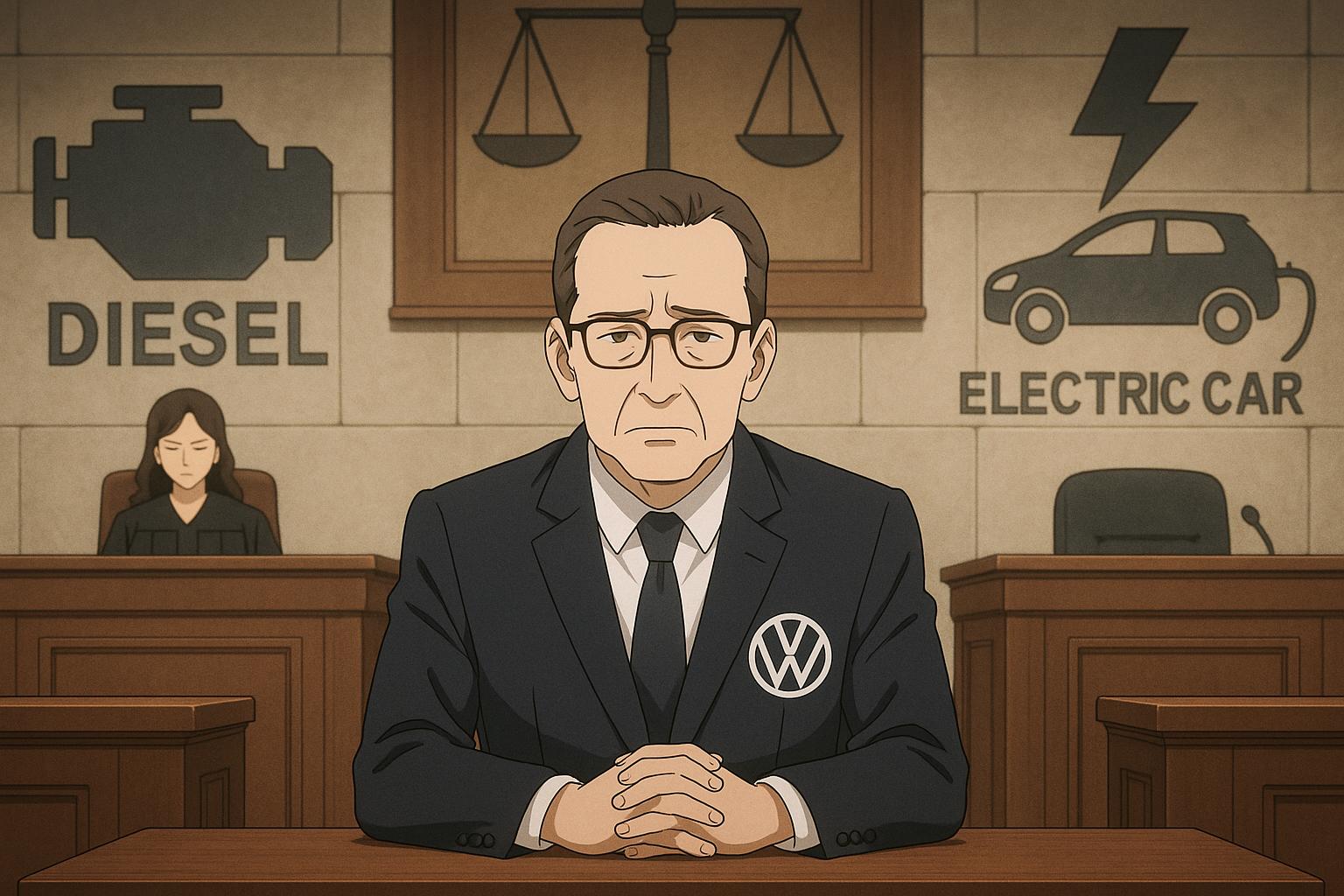In a significant legal ruling, four former Volkswagen executives were sentenced to prison on Monday for their involvement in the emissions-cheating scandal that has profoundly reshaped Europe's automotive landscape. This verdict, handed down by a German court in Braunschweig after a trial lasting nearly four years, serves as a poignant reminder of the implications of corporate malpractice. It marks a critical chapter in a complicated saga that began with the revelation of emissions manipulation in 2015 and has since reverberated through both corporate and regulatory spheres.
Jens Hadler, former head of diesel engine development, received the most severe sentence of four and a half years, described by the judges as "particularly serious" fraud. His actions included implementing software designed to detect emissions testing, allowing vehicles to temporarily pass controls while releasing pollutants at excessive levels during regular operation. This deceit not only compromised environmental standards but also misled consumers who had been led to believe they were purchasing environmentally more responsible vehicles.
The ramifications of this scandal have been extensive. Before the controversy, diesel vehicles represented more than half of the new car market in Europe, promoted as eco-friendly alternatives to petrol engines. However, this market share has now plummeted to a mere 10%. The scandal has spurred substantial regulatory scrutiny and accelerated a shift towards electrification; electric vehicles and plug-in hybrids now comprise 25% of new automobile sales. Volkswagen itself has emerged as a leader in the electric vehicle sector, reportedly selling three times as many battery-powered cars as its competitor, Tesla, in April.
In total, the Volkswagen Group has faced costs exceeding €32 billion due to the fallout from Dieselgate, which has involved lawsuits, fines, and a barrage of compensation claims from consumers and investors alike. Although some executives have settled separate charges, the high-profile case continues, with many others still under investigation. Former CEO Martin Winterkorn, facing prosecution, has had his trial suspended indefinitely due to health issues. The scope of the scandal is expansive; approximately 31 more defendants remain connected to ongoing proceedings, emphasising the scale of the misconduct within the company.
The convictions come amidst broader scrutiny of the automotive industry’s emissions testing practices, revealing significant flaws in regulatory oversight. The rampant pollution levels linked to the affected vehicles have raised alarms over public health implications, prompting calls for more rigorous enforcement and reform in emissions standards. This scrutiny has catalysed efforts towards developing cleaner technologies and has changed how consumers perceive diesel vehicles.
Volkswagen’s response to the scandal has been multifaceted; they claim to have taken the necessary steps to improve compliance and transparency. However, the cloud of Dieselgate still looms large over the company, with its reputation enduring substantial damage. Consequently, the case has not only reshaped Volkswagen but also ignited a crucial discussion about corporate ethics and accountability within the automotive sector as a whole, urging all stakeholders to re-evaluate their practices in light of the public's demands for greater responsibility.
As this chapter closes with sentences being handed down, the broader legacy of Dieselgate is yet to be fully written. The pendulum of public trust is swinging, and Volkswagen, alongside the industry at large, must navigate a path toward redemption while also embracing inevitable regulatory changes in an era increasingly defined by sustainability and environmental consciousness.
Reference Map:
- Paragraph 1 – [1], [2]
- Paragraph 2 – [1], [3]
- Paragraph 3 – [2], [4], [5]
- Paragraph 4 – [1], [6], [7]
- Paragraph 5 – [2], [3], [4]
Source: Noah Wire Services
